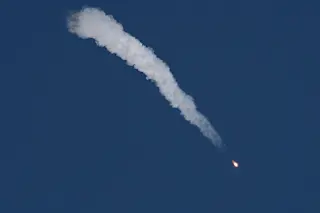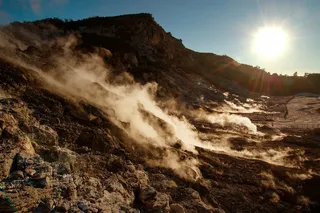An "anomaly" occurred as the Soyuz spacecraft carrying two astronauts launched toward the International Space Station from the Russian Baikonur Cosmodrome in Kazakhstan in October. The crew had to abort. (Credit: NASA/Bill Ingalls) BAIKONUR COSMODROME, KAZAKHSTAN - It was not even two months ago that a crew confidently told the Russian space commission here that it was ready to perform its duties in space. The journey was supposed to take half a year, but it only ended up being a few minutes. Expedition 57's Soyuz rocket rose from the ground, began to experience some strange vibration, and then triggered an abort. Its two crew members returned home safely, but it left behind a trail of problems for the Russian space program to solve. At least the cause came to light quickly; the Russians traced the problem to a deformed sensor in only a month, saying the rocket could carry humans ...
The First Crewed ISS Flight Since An Emergency Landing Happens Monday. Astronauts Say They're Confident in Russian Rocket
The Soyuz spacecraft launch faced an anomaly, causing an abort on its mission to the ISS with Expedition 58's crew. Read more!
More on Discover
Stay Curious
SubscribeTo The Magazine
Save up to 40% off the cover price when you subscribe to Discover magazine.
Subscribe













